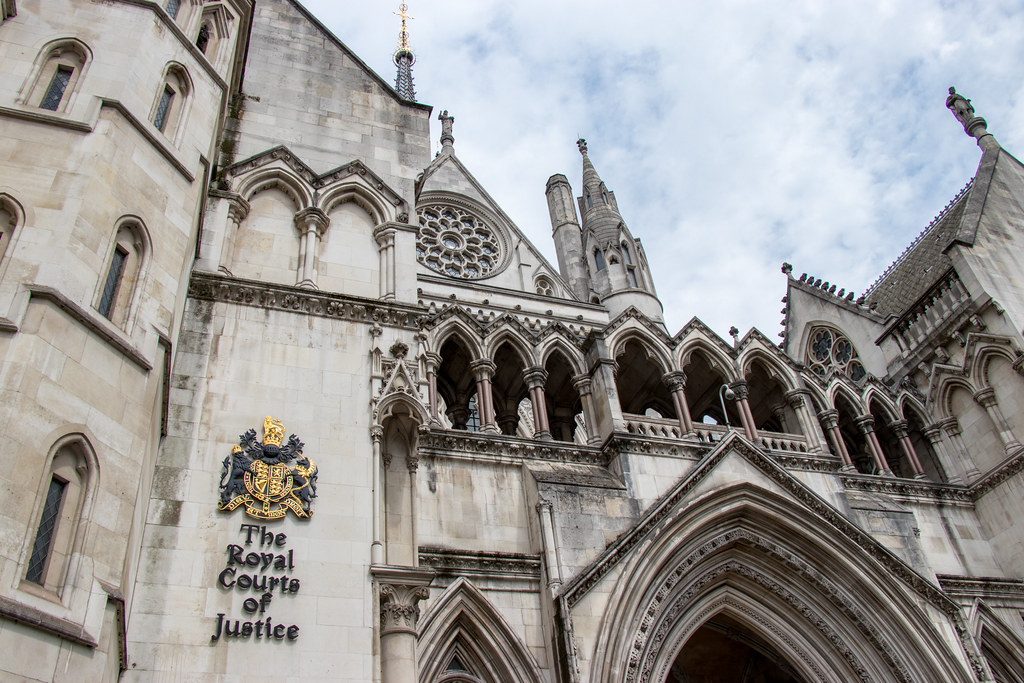
UK High Court Upholds Sanctions Designation in First Ruling on a Challenge by an Individual Since the Russian Invasion of Ukraine
by Natalie Lucas, Legal Officer
On 18 August, the UK High Court upheld sanctions imposed by the UK against an individual, following Russia’s invasion of Ukraine, in the first major challenge by an individual to UK sanctions.
Eugene Shvidler, a dual US-UK citizen and businessman of Russian origin, was one of 65 individuals sanctioned by the Foreign Secretary on 24 March 2022 following Russia’s invasion of Ukraine. The Foreign Secretary justified Shvidler’s designation on the basis of his relationship with Russian oligarch Roman Abramovich and his membership on the board of Evraz plc, a company involved in Russia’s steel and mining sectors.
Shvidler argued that the designation disproportionately infringed upon his rights under the European Convention on Human Rights (ECHR). In upholding the designation, the High Court reconfirmed that it will generally attach particular weight to the judgments of the primary decision maker on such matters and that the government enjoys a reasonably broad discretion in this area.
Shvidler claimed that the designation constituted a disproportionate interference with his and his family’s right to respect for private and family life (Article 8 ECHR) and to the peaceful enjoyment of one’s possessions (Article 1 of Protocol 1 of the ECHR (A1P1)).
The proportionality of the designation fell to be assessed by four issues:
- Did it seek to achieve a sufficiently important objective which would justify limiting a fundamental right?
- Was it rationally connected to that objective?
- Were less intrusive options available? And,
- Did it strike a fair balance between the individual’s rights and the interests of the community?
Shvidler’s lawyers also argued that the Foreign Secretary’s decision was unjustified discrimination, because the only board members of Evraz plc to be designated were those of ethnic Russian origin.
It was common ground between the parties that the first limb of the proportionality test was met – attempting to dissuade the Russian government from its actions in Ukraine was a sufficiently important aim. The judge rejected a challenge to the government’s reliance on Shvidler’s relationship with Abramovich as a ground and found that there was a rational connection between the designation and the government’s objectives.
The judge also rejected the argument that less intrusive measures were available which were likelier to have the desired effect noting that “the relative benefits, disadvantages and effectiveness of different measures taken in pursuit of foreign policy objectives are not one on which the Court can second-guess the Foreign Office”. The Court concluded that it was proper to defer to the Foreign Secretary’s judgment, unless the government’s analysis was “self-evidently irrational or outside the range of reasonable responses”.
The judge also found that the designation struck a fair balance between Shvidler’s rights and the community interest. He held that the foreign policy objectives at stake in this case were “of the highest order” and weighed “heavily” in the scales. While acknowledging the effects of designation on Shvidler and his family were severe, the Court concluded that they were also temporary and reversible and did not threaten his life or liberty. The judge further pointed to licensing arrangements and the claimant’s ability to ask the Foreign Secretary to vary or revoke the designation, or to challenge decisions in court, as ameliorating the negative effects of the sanction.
Finally, the Court rejected the argument that the decision to designate Shvidler constituted unjustified discrimination under Article 14 ECHR, read with Article 8 and A1P1. The judge held that there was no evidence that the ethnicity of Shvidler and other designated members of Evraz plc’s board played a role in the government’s decision-making, rather, it was a combination of relevant factors in each case (in Shvidler’s, his role at Evraz plc in combination with his relationship with Abramovich) that led to their designation.
The decision is the first challenge by an individual to reach court under the UK’s post-Brexit autonomous Russia sanctions regime (and follows similar challenges by entities seeking to revoke their designations).
Sanctions are increasingly being used as a tool to respond not only to foreign policy challenges but also to serious human rights abuses and corruption. This decision is an important step in the development of the UK’s sanctions policy and provides civil society with important guidance on the various factors which will be taken into account in sanctions decisions. For example, the decision provides important guidance on how UK courts will approach challenges to designations under section 38 of the Sanctions and Anti-Money Laundering Act 2018, in particular where there are arguments that such designations disproportionately interfere with the sanctioned person’s human rights and where the designation is based upon an individual’s association with, or financial benefit from, a larger network.
As civil society, governments and others continue to consider how to meaningfully respond to Russia’s invasion of Ukraine and most effectively deliver financial and other accountability to those who suffer as a result, creating a robust and fair sanctions system remains an important mechanism for effecting behaviour change.
Photo credit: HarshLight (CC BY 2.0)
